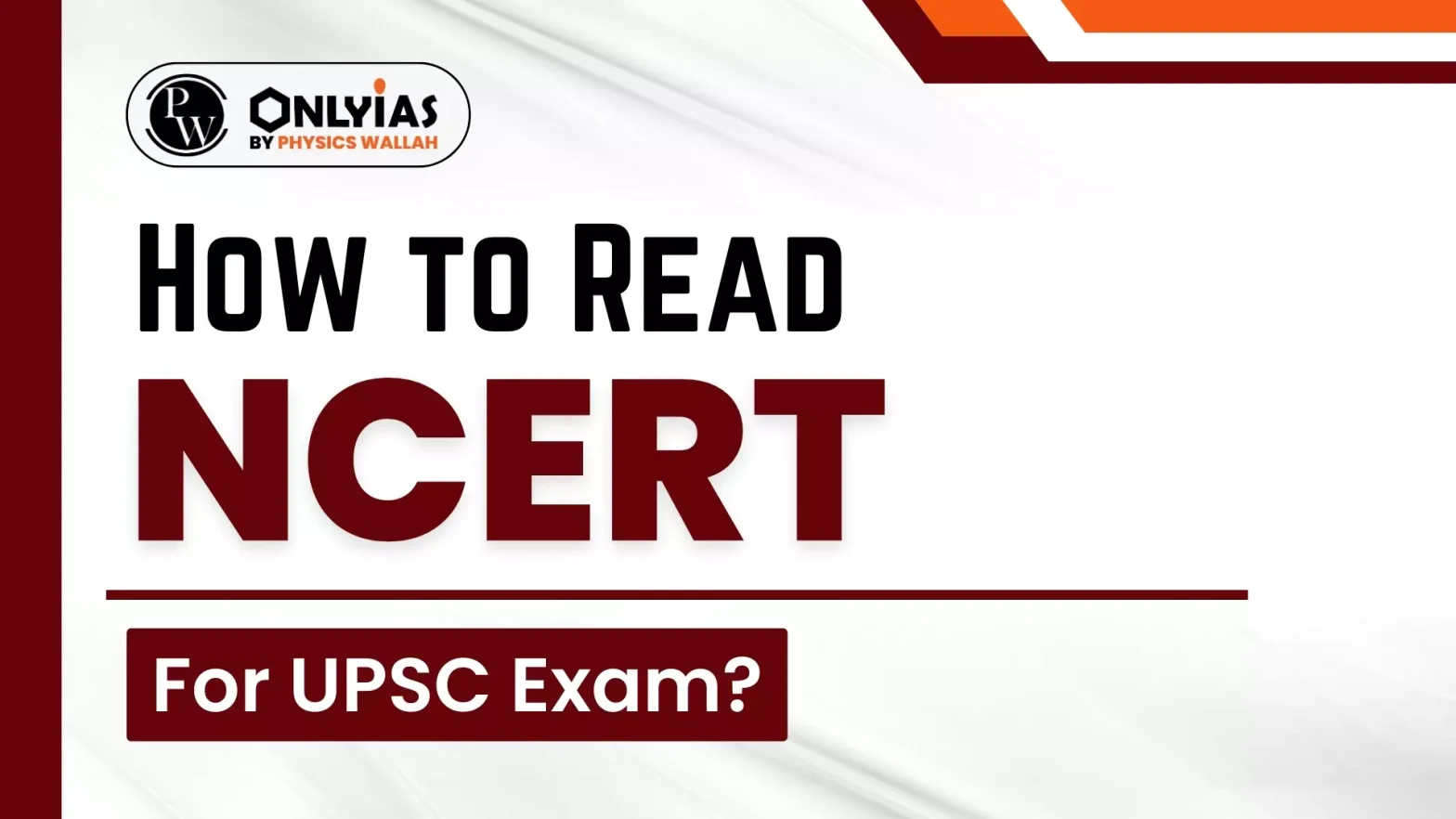“How to Read NCERT for UPSC Exam?” is one of the most common questions faced by UPSC aspirants. Here, we will guide you on approaching NCERT books for the UPSC exam!

How to Read NCERT for UPSC Exam? If you are also starting UPSC preparations or wondering how to read NCERT books better for the UPSC exam, here we have compiled some top techniques and tips. NCERT books are the basic materials that a candidate has to study while preparing for the UPSC exam and reading them effectively is indeed a challenge. By following this subject-wise approach, aspirants can efficiently utilize NCERTs to build a strong foundation for the UPSC exam.
How to Read NCERT for UPSC Exam? Best Techniques
Candidates preparing for UPSC exam are required to read NCERT books. These books form the foundation learning for any aspirant. For best outcomes, candidates can follow some of the techniques mentioned below.
NCERT textbooks are the foundation for UPSC preparation, offering conceptual clarity and easy-to-understand explanations. They provide authentic and reliable content, which is essential for both Prelims and Mains. By focusing on the right NCERTs and following a structured reading plan, aspirants can effectively cover the basics of the syllabus.
Below is a subject-wise guide with tips to make the most of NCERTs for History, Geography, and Polity.
History NCERTs are indispensable for understanding India’s past, from ancient times to modern history. These books provide a chronological understanding and cover cultural, social, and political developments.
Geography NCERTs help in building a strong base for physical, economic, and human geography, which are crucial for both Prelims and Mains.
Polity NCERTs provide a solid base for understanding the Constitution, political institutions, and governance in India.
Economy is essential for UPSC preparation, and NCERTs provide a solid foundation for understanding its concepts. Tips for Reading Economy NCERTs:
Beginners preparing for the UPSC exam will find it challenging to navigate through multiple NCERT books. To address that challenge, here are some ways for beginners to read NCERT books.
NCERT books are vital components of UPSC preparation. Candidates must start with the absolute basics and then move on to complex topics. The importance of NCERT books for UPSC is given below.
Ready to boost your UPSC 2025 preparation? Join PW’s UPSC online courses today!
UPSC Exam 2025 Related Articles
UPSC Prelims 2025 Exam
UPSC Notification 2025
UPSC Preparation 2025
UPSC Eligibility 2025
UPSC Exam Pattern
UPSC Syllabus
Yes. UPSC has been asking questions or themes directly from NCERT books.
Yes. Candidates can make notes from NCERT books, which can be read later during revision.
Daily 3-4 hours must be dedicated to reading NCERT books.
No. NCERT books will help in basic understanding but candidates must also refer to standard books.
For effective reading, candidates must focus on conceptual understanding. Making notes and revising them regularly will help.
<div class="new-fform">
</div>
